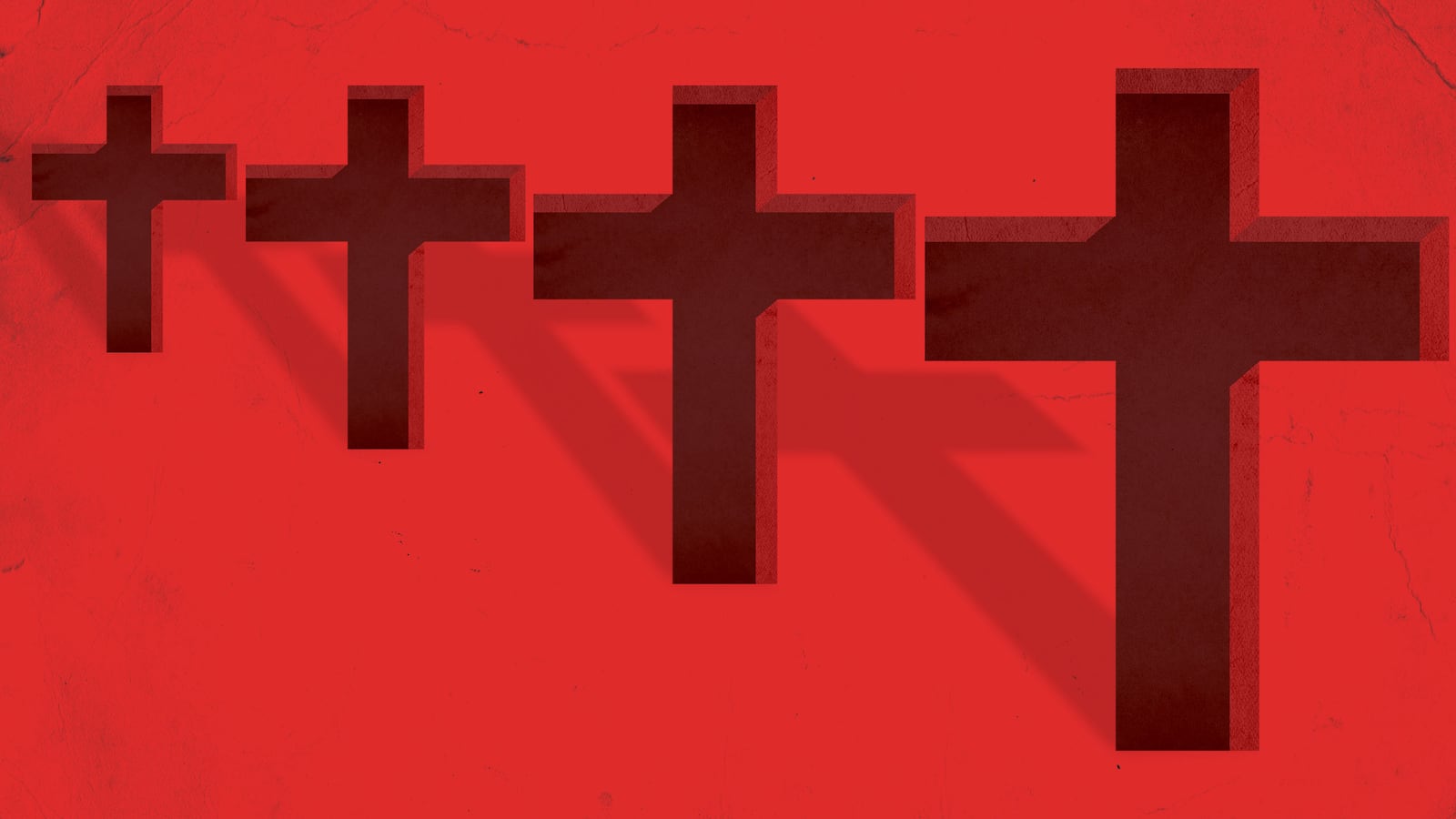A recent poll conducted by the Public Religion Research Institute placed white evangelical approval of President Donald Trump at 75 percent, a level of adulation higher than when he was elected. Anyone who doesn’t see a moral conundrum in that figure can stop reading. But it speaks volumes about why Americans, especially young Americans, are in increasing numbers joining the “nones,” a category coined by pollsters to single out people who have no religious affiliation, who say that religion is not very important in their lives, and who, while they may believe in some sort of spiritual power, reject the idea of God described in the Bible.
Trends are unmistakable. According to polls conducted by the Pew Foundation, 23 percent of Generation X Americans (born between 1965-1980) claim no religious affiliation. That number rises to 34 percent of older millennials (born between 1981-1989), and to 36 percent of younger millennials (born between 1990 and 1996). Although the retreat from traditional forms of Christianity has long been apparent in western European countries, the pattern of a declining attachment to religion in the young is unprecedented in American history. Until the last decades of the 20th century, they fell in line with the denominational attachments of their parents.
What has happened? One opinion attributes the growing religious indifference of young people to scientific knowledge that has made a creator of natural phenomena irrelevant. God didn’t design the evolution of species or arrange for the big bang. Yet American universities sanctified Darwinian biology for many decades along with the demystifying explanatory powers of physics loosening the ties of young Americans to their traditional faiths. True, there is a correlation between higher education and religious skepticism. However, even after most colleges and universities had broken ties with the religious denominations that had founded them and ended compulsory chapel, pollsters in the post World War II years had no need for the category “none” in recording the religious beliefs of college students. Theologians, Reinhold Niebuhr and Paul Tillich among them, attracted large audiences on college campuses and wrote best sellers used in college courses.
What is new and epitomizes what’s gone wrong with American religion is the moral bankruptcy of the single largest group of American Protestants, white evangelicals. A moral pecking order seems to have been turned on its head. In August 2017, President Trump had to dissolve two of his business advisory councils, composed of people not normally regarded as obsessed with ethical reflection, because of a massive defection of CEO’s. They emerged as moral giants compared to the members of his Council of Evangelical Advisors who remained steadfast in their loyalty to the president.
It was already hard enough to keep a straight face when James Dobson, the founder of Focus on the Family, claimed on the eve of the 2016 election that Trump was “tender to things of the spirit.” Dobson’s endorsement dismissed the candidate’s taped remarks demeaning women as past history. Trump was a changed man, and his sins washed away.
Dobson’s statement gave way to the reality of a president, pursued by a determined porn star, whose daily behavior evidenced an irreversible moral lobotomy. Yet despite the depressing vulgarity of America’s “molester-in-chief,” Ralph Reed, long an enthusiastic evangelical proponent of molding religion to a conservative political agenda, in February 2018 urged supporters of his Faith and Freedom Coalition to mark President’s Day by “thanking President Trump for all he’s done for our nation and for the American people.” Reed characterized him as a “tireless advocate for Christian ethics,” and with Dobson called on their peers to fast and ask God to prevent the impeachment of the president.
Perhaps fearing that a strategy of placing a moral halo on Trump had faltered, Jerry Falwell Jr. spoke out for separation of church and state in a way that would have set his father spinning in his grave: “Christian ethics and American politics should be kept separate.” Amen say most secularists, but the words coming from the mouth of someone who had long argued the opposite suggested either confusion or hypocrisy.
The moral corruption apparent in the largest segment of American Protestantism began in the ’80s when Jerry Falwell Sr.’s Moral Majority and Ralph Reed’s Christian Coalition started to cozy up to politicians with a conservative social and economic agenda. It’s precisely at that moment when pollsters began to record a retreat from religion by an important segment of the population. Religion disguised as partisan politics may energize evangelical voters, but with respect to faith it has backfired. Yet it goes on. President Trump’s effort to remove restrictions on church political activism has encouraged evangelical leaders to organize their troops to vote Republican in the 2018 midterm elections.
The strategy ends by delivering the coup de grace to a belief long held by Americans that places of worship are the most reliable sources of moral instruction. Since the generation of the founders, even American Protestants of less than fervent conviction took their children to church to learn the difference between right and wrong. The disaffected young aren’t likely to expose their children to preachers who tell them that women count for less than men, that their gay friends are going to hell, and that white men with locker room language should rule.
This is nothing to cheer. It’s pathetic that while the voices of evangelical leaders don’t speak for all religious Americans and in fact are anathema to many of them, the latter seem to be paralyzed by the thought that speaking ill of someone else’s religious belief is intolerant. Their good manners won’t win back the loyalty of young people. Tony Perkins, the president of the Family Research Council, claims that attacks on President Trump are attacks on the judgment of many conservatives of faith. Exactly so!
R. Laurence Moore and Isaac Kramnick are the authors of the forthcoming book Godless Citizens in a Godly Republic, to be published by Norton in August.






